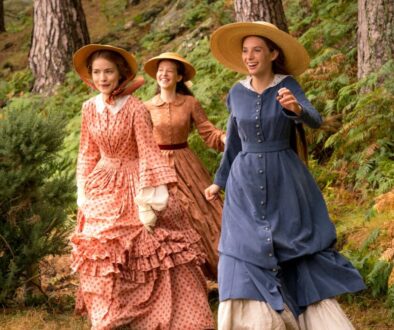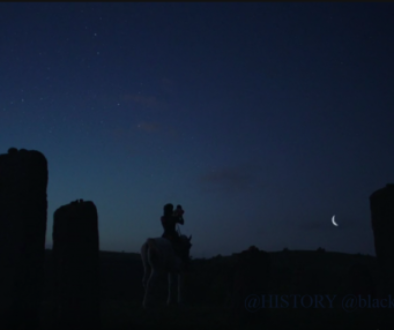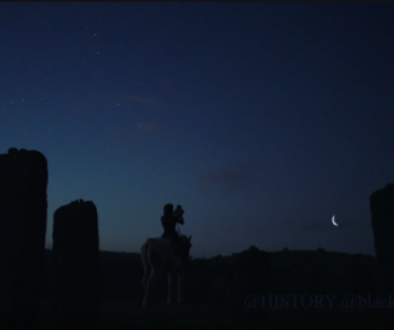An Ambitious New Miniseries Heralds a Journey to Freedom
(This article was originally featured on The Columbia Journalist on Feb. 12, 2015)

A pregnant woman is yanked from the sickening bowels of a slave ship to be tossed into the Atlantic Ocean. She would be a liability during the treacherous crossing from Africa to America. But before the slavers can murder her, a young midwife named Aminata Diallo steps forward and saves her life. She will care for the woman during the middle passage.
The story of Diallo’s journey and her unspoken mission to save herself and other enslaved people unfolds in the miniseries “The Book of Negroes,” which will be televised over three nights on BET beginning Feb. 16.
The series is a major project for BET, which hopes “The Book of Negroes” will attract a wide audience, as did the notable slavery epic, “Roots,” in 1977. The Alex Haley saga was watched by more than 40 million people when it ran on ABC.
Based on the novel by Canadian writer Laurence Hill, the title of “The Book of Negroes” refers to a real British document that listed the names of runaway slaves who had helped the British during the Revolutionary War.
Many slaves used the wartime chaos as an opportunity to escape their owners and made their way to New York. When fighting ended in 1781, the British army declared that all freedmen and runaway slaves who had completed two years of service would qualify for free passage to Novia Scotia. Army officers heard the testimonies of former workers, and compiled a list of about 3,000 people who were approved for passage to Canada.
A copy of the ledger is on view at the National Archives in Washington, D.C.
“This is an untold African-American/Afro-Canadian story,” Hill said at a screening of the miniseries in December. Hill spent five years researching slavery in the 18th century before writing “The Book of Negroes.”
Aminata Diallo’s journey unfolds over six hours. The 12-year-old, whose mother trained her to be a midwife, is kidnapped from Guinea in the 1750s. After months of walking overland and a dangerous ocean crossing, she is sold to an indigo plantation in South Carolina. She defies bans against education for slaves, and learns how to read and write. Years later, Diallo is sold to a Jewish indigo inspector, who teaches her accounting and bookkeeping skills.
The inspector takes her on a business trip to New York just before the colonies declared war on England. Although the inspector treated Aminata well compared to the plantation, she is still determined to escape the injustice of slavery. She runs away as the Patriots begin to attack British government officials and soldiers.
During the war, she works in a tavern and teaches black New Yorkers how to read and write, and she becomes a respected leader among freedmen and runaways. The British seek her assistance in compiling of the registry of those bound for Nova Scotia.
Aunjanue Ellis stars as Diallo. She is joined in the cast by Cuba Gooding Jr., Lyriq Bent, Louis Gossett Jr., Jane Alexander, Ben Chaplin and Allan Hawco.
“Aminata used her imagination to escape her situation,” Ellis said at the screening, about how Diallo used the record to forge her own escape to Canada by adding her name. At a time when black women had little power, Diallo had the courage, determination and the ability to help herself and others as well.
Damon D’Oliveira, a Canadian producer and one of the executive producers of the miniseries, said he only had a script based on Hill’s novel when he first pitched the project. No actors or stars had been cast. BET was the first choice in American network distribution.
“The power was in the material,” said D’Oliveira, who added that BET executives thought the miniseries was a good fit for the network, which champions black culture.



